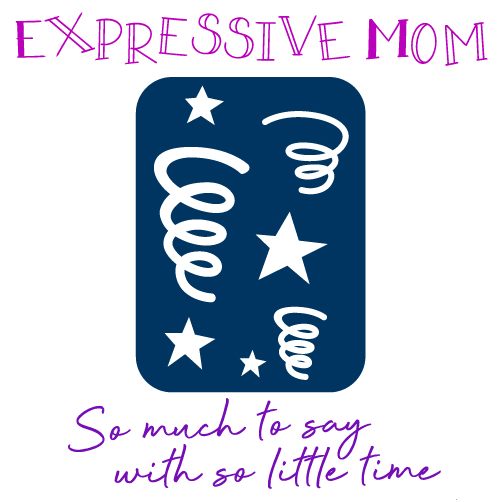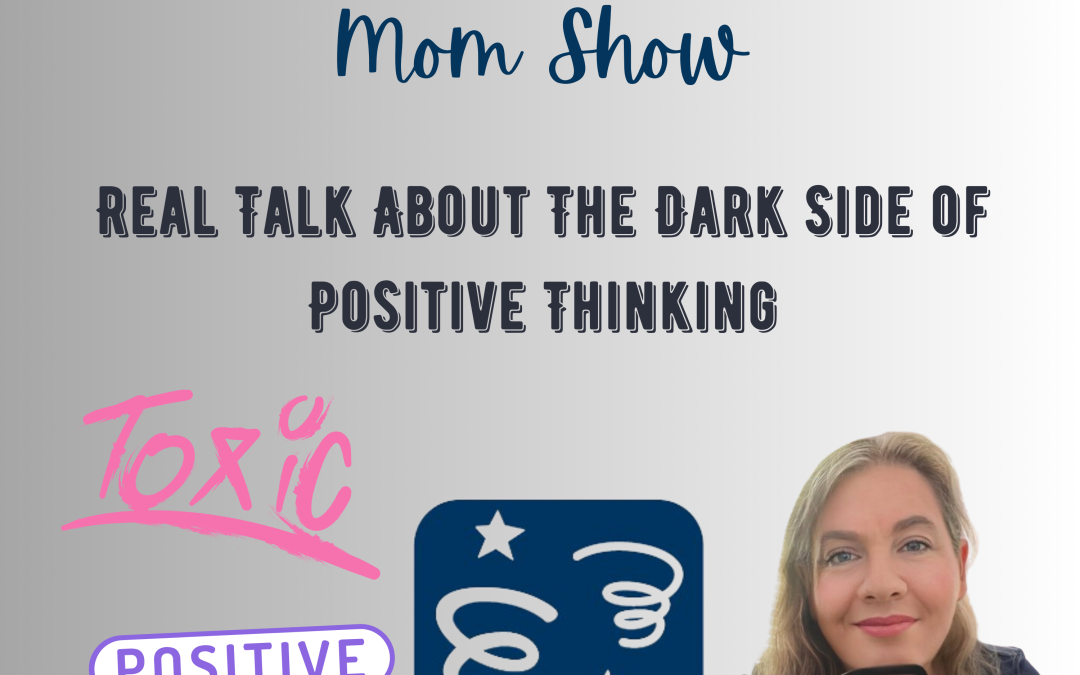On the most recent episode of The Expressive Mom Show, I will focus on a topic that often goes unnoticed or gets brushed aside – toxic positivity. While positivity and optimism are generally celebrated, it’s crucial to recognize that there can be a dark side to excessive and insincere positivity. In this episode, we’ll explore why toxic positivity is problematic and provide examples of toxic positive statements that can undermine genuine emotional well-being.
The Problem with Toxic Positivity
Toxic positivity arises when we suppress or invalidate authentic emotions to pursue a relentless pursuit of happiness and optimism. It dismisses the complexities of human experience and implies that negative emotions are bad or should be avoided at all costs. This mindset can be harmful for several reasons:
There is also emotional suppression. Toxic positivity encourages people to suppress their genuine feelings, leading to emotional repression. It implies that expressing sadness, anger, or frustration is unacceptable, forcing individuals to wear a constant mask of happiness.
The other issue is that it is so invalidating. By promoting an overly positive outlook, toxic positivity invalidates the genuine struggles and challenges that people face. It dismisses real pain, grief, and hardship, leaving people feeling unheard and unsupported.
Also, there is pressure to maintain a positive facade. Toxic positivity fosters an environment where individuals feel pressured to maintain a facade of unwavering happiness. This can be exhausting and create feelings of inadequacy when genuine emotions inevitably arise.
Examples of Toxic Positive Statements
Let’s shed light on some common toxic positive statements that may sound well-intentioned but can undermine emotional well-being:
1. “Just think positive, and everything will be fine.” This statement oversimplifies complex situations, dismissing the real challenges individuals may be facing. It implies that a positive mindset alone can magically solve all problems. You can think positively all you want, but it does not stop life from happening to you.
2. “Good vibes only!” While it’s important to surround ourselves with positivity, this statement ignores the fact that negative emotions are a natural part of life. It invalidates the need for processing and understanding difficult emotions. I hate this one with a passion.
3. “Don’t worry, be happy!” This phrase can trivialize genuine concerns and anxiety. It fails to acknowledge that worrying is a normal response to certain situations and may overlook the need for support or problem-solving. If there is a reason to worry, there is usually a good reason and a sign that the issue you worry about needs a resolution.
4. “Negative energy attracts negative outcomes.” This statement places blame on individuals for their negative experiences, disregarding external factors and the complexities of life. It oversimplifies the law of attraction and can induce guilt. Sometimes random crap happens which has nothing to do with your state of mind.
5. “Everything happens for a reason.” While this phrase aims to provide comfort, it can dismiss the pain and confusion individuals may be going through. It overlooks the fact that some events may simply be random or unjust and can invalidate the need for grieving and healing.
Do I think some things may happen for a spiritual reason? It could be in some situations, such as you not getting a particular job as there could be a better one for you, but it does not matter whether it may or may not; it is not something you tell someone who faced a disappointing, hence the job situation or, worse, devastating situation and who will be going through a lot of grief. Sometimes as mentioned, crap does happen.
6. “Just smile, and it will all get better.” This statement trivializes the complexity of personal struggles. It suggests that putting on a happy face will magically solve deep-rooted issues, ignoring the need for genuine support, self-reflection, and healing. And no, sometimes you will not be in the mood to smile and that is okay.
7. “You attract what you believe.” This statement blames individuals for their own hardships and suggests that negative experiences are solely a result of their mindset. It disregards the influence of external factors and fails to acknowledge systemic issues that can impact people’s lives. The truth is, I detest the movie The Secret for this reason, and I know others share the same sentiment.
I do believe there is truth to what you focus on. It expands as if you are constantly in a negative mind frame; you will encounter more unpleasant situations, as I have seen for myself. Think about it. When you are in a negative mind frame, and not for only one day, you will inadvertently antagonize others, who will then hurl negativity back at you. That is the only thing I do agree with when it comes to this stuff. However, when it comes to situations such as you attracting a car accident or something else that happened, no. Just no, that is victim blaming.
While often well-intentioned, toxic positivity can harm our emotional well-being. We must recognize the importance of embracing the full spectrum of human emotions and allowing ourselves and others the space to experience and process them authentically.
By cultivating a balanced perspective, we can create a healthier and more empathetic environment where genuine emotional well-being is prioritized over the pressure to uphold an unrealistic facade of eternal positivity. Next week will be the final solo podcast episode of The Expressive Mom Show, as I will be focusing on why it is dangerous to expect victims of abuse to forgive their abusers and why the topic of forgiveness itself falls into this realm of toxic positivity and spiritual bypassing as well.



Connect With Me !